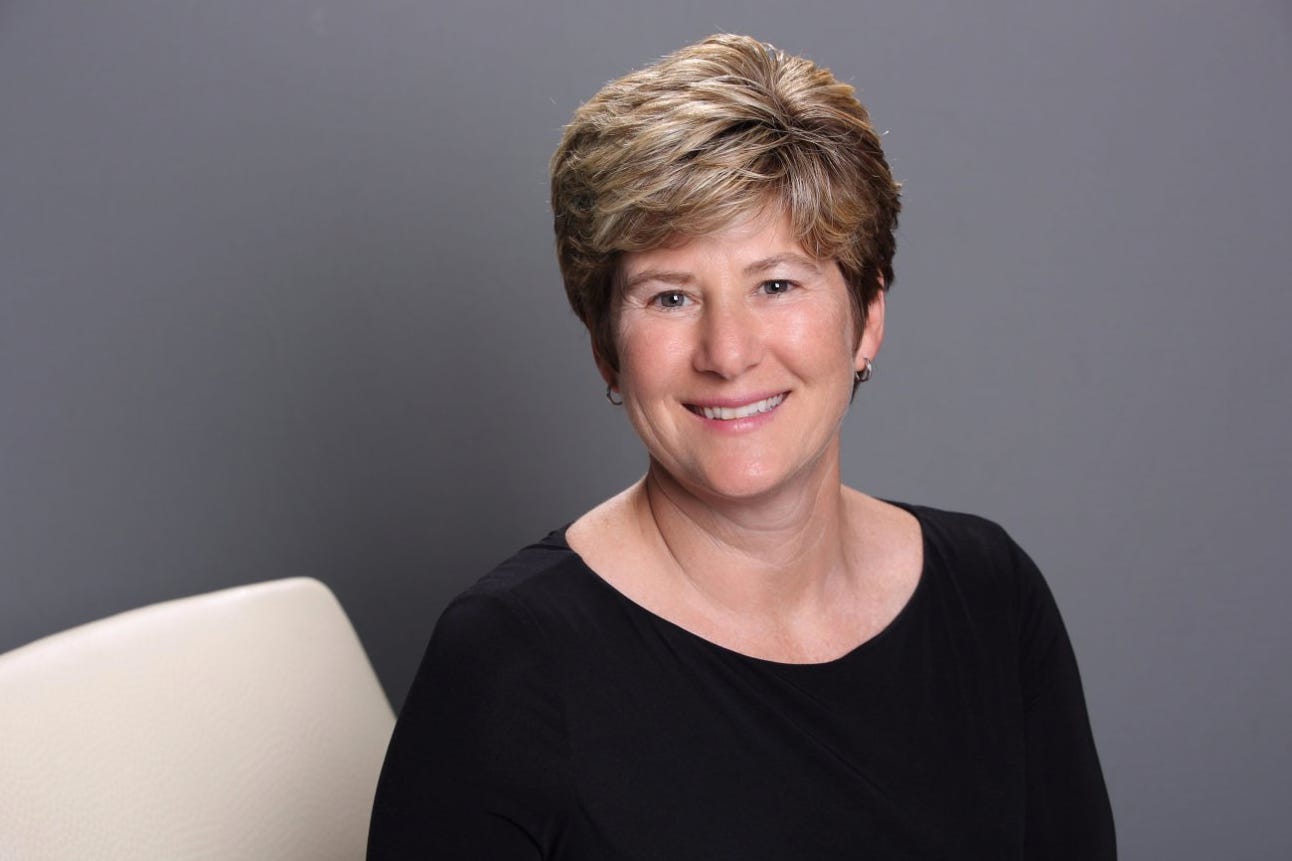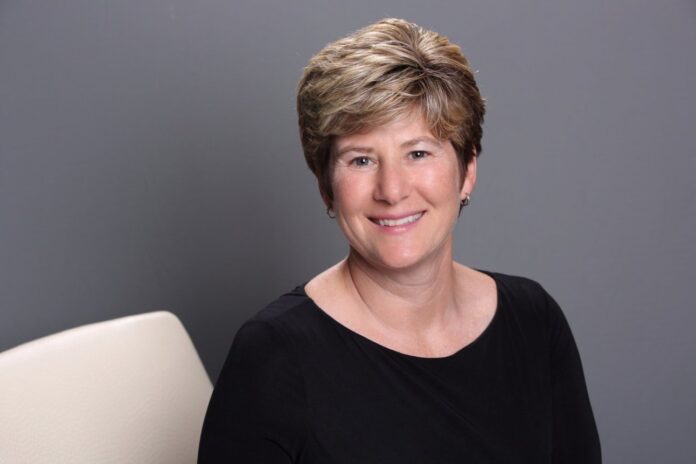5 Ways To Improve Mental Wellness and Create a Healthy Relationship With Technology, With Dr. Michelle Robin

Using a computer or smartphone is so simple that we don’t even think about it, but our screen time is having a big effect on us.
I had the pleasure of interviewing Dr. Michelle Robin, chiropractor, Chief Wellness Officer and founder of Your Wellness Connection, and chairman and founder of Small Changes, Big Shifts in Overland Park, Kansas. When she founded Your Wellness Connection, it was the first wellness center of its kind in the nation and it still connects consumers to holistic practitioners of all types.
Thank you so much for doing this with us! What is your backstory?
I was a kid who struggled with self-esteem and with my life situation. I was lucky that when I was a teenager, I got hurt playing basketball, because treating that injury led me to a chiropractor. He practiced living whole person health and told me, “You can be anything you want to be. Dream bigger.” At that point in my life, I didn’t have dreams. I wasn’t thinking about going to college, I was just trying to survive the day. But he taught me a different way to live and I want to share that with everyone.
Can you share the most interesting story that happened to you since you started your career?
I began my career knowing innately about whole person health and how important it is for all of us. It has taken 20 plus years for whole person health to catch on and become popular. And it has been interesting to see that change.
Are you working on any new or exciting projects now?
Yes! Over the past year, I worked on a big initiative to share The Quadrants of Wellbeing — a simple framework that helps us understand the connections between our body, mind, and spirit. In March, I announced the expansion of this initiative by launching two new businesses. The first is Small Changes Big Shifts® that empowers people to whole health through balanced daily practices and an interdisciplinary network of whole health providers to guide them. The second is the BigShifts Foundation, a non-profit organization dedicated to making generational change for 5–30 year olds through whole person wellbeing.
In order to create generational change, we need providers who understand whole health, and are dedicated to living it and to teaching it to consumers.
Between work and personal life, the average adult spends nearly 11 hours looking at a screen per day. How does our increasing screen time affect our mental, physical, and emotional health?
We might think first of the physical effects of screen time, especially if you have dry, tired eyes at the end of the day. Those effects are more far-reaching than we realize though.
Staring at a computer all day can make our eyes tired and dry. Beyond that physical symptom, the light from our devices can disrupt our sleep, causing a rough morning, but also making us cranky and prone to overeating. And the effects from the light don’t stop there, the light can actually change our brain.
Sitting hunched over a laptop all day can cause neck strain and back pain. But again, the physical symptoms are only one small part of the effects. Poor posture (including the hunching over a computer kind) can increase symptoms of anxiety and depression and decrease feelings of self-confidence. The symptoms of anxiety and depression are also increased by the isolation caused by screen-time.
Using a computer or smartphone is so simple that we don’t even think about it, but our screen time is having a big effect on us.
Can you share your top five ways people can improve mental wellness and create a healthy relationship with technology?
Technology should enhance our lives, not run our lives. To make technology enhance our lives, we need to manage it.
Make sure your technology is not in the bedroom. Put your phone in the kitchen to charge when you go to bed.
Create a time limit for your use. If you are using a computer at work, set a timer for 30 or 60 minutes and move every time it goes off.
Put yourself on your calendar and use your phone to remind you. Put your wellness habits like exercising, cooking healthy food, and meditation on your schedule.
Adopt a healthy perspective. Social media often leads us to comparison, but put all those posts into perspective. Your life is so much more than a series of posts.
Prioritize face-to-face friendships. Make time to see your friends and while you are with them, really connect by being present. For example, put your phone away.

51% of Americans say they primarily use their smartphone for calls. With the number of robocalls increasing, what are ways people can limit interruptions from spam calls?
You manage your technology. Don’t let it manage you. Your phone has all kinds of settings and options to help you manage the interruptions.
You could definitely cut down on spam calls by turning your phone off.
But I know many people are worried about turning their phone off and missing a call from their child’s school, so you can set your phone to “Do not disturb” mode which will allow you to choose specific contacts that can interrupt. You can set “Do not disturb” mode to come on at specific times like while you are working, or some phone models automatically turn it on when you put your phone face down.
You can also start a habit of leaving your phone in a different room while you are eating dinner with your family, or at other times that you don’t want to be disturbed.
When you manage your technology and create time away from it, you can feel more connected to yourself and the people around you.
Between social media distractions, messaging apps, and the fact that Americans receive 45.9 push notifications each day, Americans check their phones 80 times per day. How can people, especially younger generations, create a healthier relationship with social media?
We can control the technology that we use and it’s important that we teach our children how to manage their technology as well.
Push notifications can be turned off. Turn them off so that you can choose when you use social media instead of letting it choose for you.
Set a timer for how long you want to use social media. This will help you to spend 10 minutes instead of scrolling mindlessly for hours.
Be a go-giver. With your time on social media, celebrate others for the great things they are doing, and share positivity.
Set a goal for interacting with people in real life. Connect with your current friends, join meetup groups to meet new people, volunteer with an organization you enjoy.
80% of smartphone users check their phones before they brush their teeth in the morning. What effect does starting the day this way have on people? Is there a better morning routine you suggest?
I spent the last year sharing the message of the Quadrants of Wellbeing, and I think the most important Quadrant is the PsychoSpiritual Quadrant. The PsychoSpiritual Quadrant reminds us that our body, mind, and spirit are all interconnected, and that to be healthy, we also have to take care of our mind and spirit.
The way that we start our day has an important effect on our mind and spirit. Looking at our phone first thing is not a peaceful, smooth transition into the day. It pulls us out of our rest with bright lights and, depending on what we are looking at, can cause anxiety (the news) or a spike of adrenaline (an in-depth email about your upcoming project).
I recommend starting the day more peacefully and allowing your body, mind, and spirit space to transition into the day. After your alarm clock goes off (use an alarm clock instead of your phone), lay in bed and take 4 deep breaths. Feel your belly expand as you breathe in. After breathing deeply, name 5 things you are grateful for. Try not to name the same 5 things every day. Then get up, use the restroom, and drink a full glass of water. From there, continue with your normal morning routine.
Can you please give us your favorite life lesson quote?
“Small changes can ultimately make big shifts in your whole life.”
This my personal mantra. I believe that we can make one small change and as we do that over time, we’ll completely change our lives.
For example, if you take my suggestion of a morning routine and start tomorrow, you might not feel much different tomorrow. But if you do it every single morning for the next 30 days, you can completely change your relationship with your phone. It’s a very small change, but it can change your life.
And it is true in all areas of our lives. We don’t need to get overwhelmed with a huge to-do list. Instead implementing one small change at a time can make all the difference.
If you could start a movement that would bring the most amount of wellness to the most amount of people, what would that be?
We have started a movement with Small Changes, Big Shifts and the Big Shifts Foundation, and I am really excited about the future!

What is the best way our readers can follow you on social media?
You can follow me on facebook, instagram, and twitter. You can also subscribe to my email newsletters at drmichellerobin.com and learn more about Small Changes, Big Shifts and the Big Shifts Foundation.


